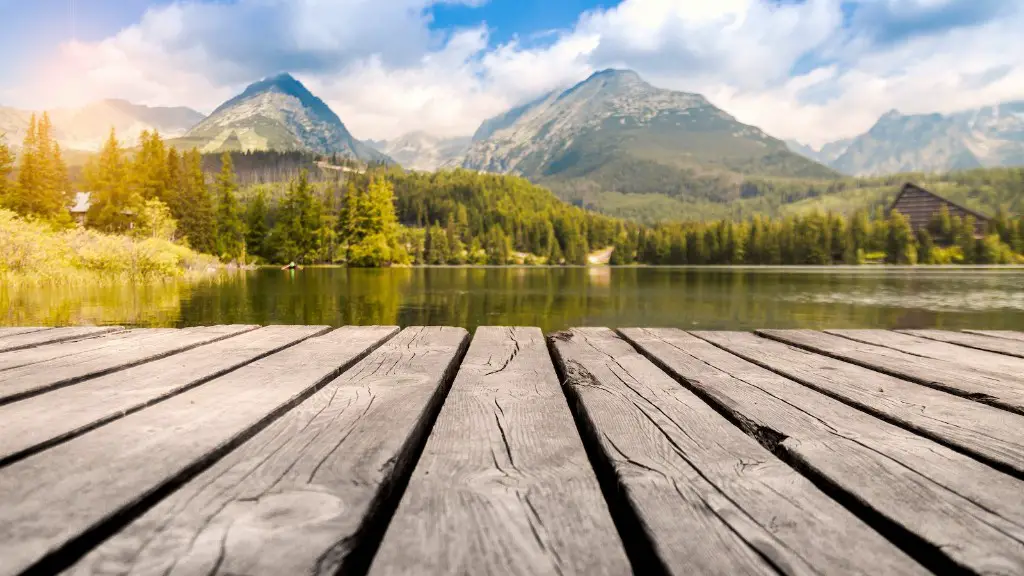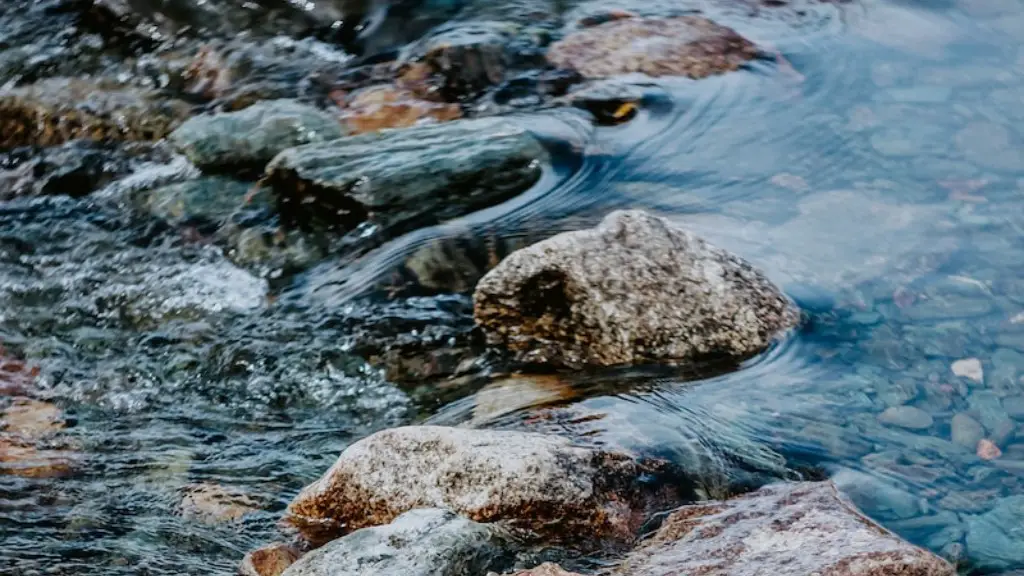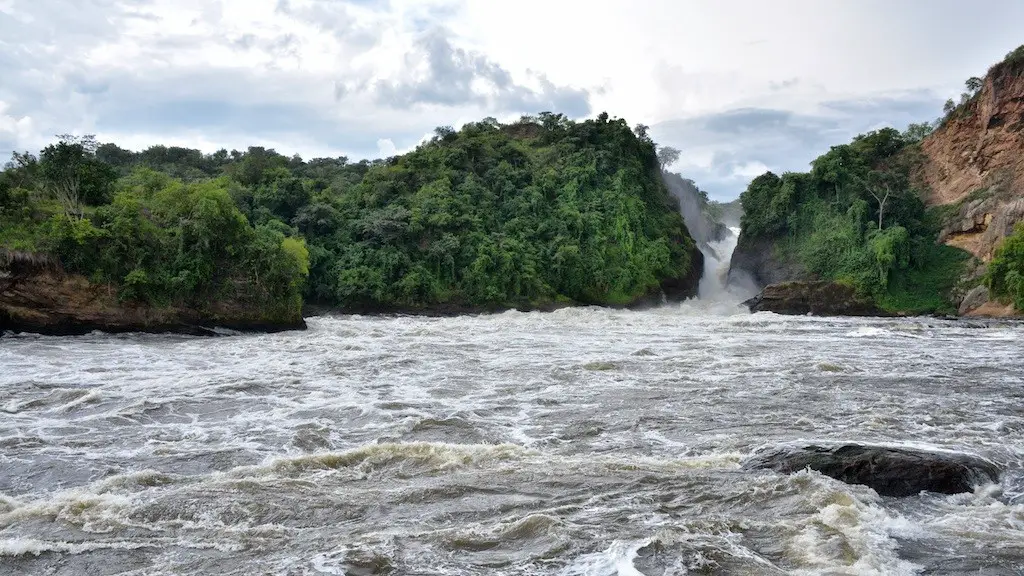Introduction
The Mississippi River, one of the most powerful rivers in the United States, is a living diary of the country’s growth and development. From its sources in Minnesota, this mighty river flows southward, almost 2,350 miles, where it eventually reaches the Gulf of Mexico. Travelers typically experience a sense of awe as this mighty river meets the seemingly endless expanse of the Gulf.
History
Since ancient times, the Mississippi River and its vast delta have played an important role in America’s history. The river served as a trading path for many Indigenous American tribes, an escape route for enslaved people, and a means of transportation for settlers as they traveled westward. This mighty river has been a centerpiece of wars, most notably the American Civil War. Even today, the Mississippi continues to be an important transport link, as it is home to numerous barges, ferries, and other boats traversing its waters.
Ecology of the Area
The Gulf of Mexico is part of a complex ecosystem that includes a wide variety of plant and animal life. A variety of birds, fish, and other aquatic species can be found in the area, as well as human settlements along the coasts.
The Mississippi River also has a variety of inhabitants. The area is home to freshwater fish species like bass, catfish, and shad, as well as various migratory birds. There are also many species of insects that make the Gulf of Mexico their home.
Importance of the Delta
The area where the Mississippi meets the Gulf is known as the Mississippi Delta. The Delta is an ecologically vital area formed by the diversion, deposit, and accumulation of sediment and alluvium over thousands of years. It is home to numerous species of flora and fauna, including the endangered Louisiana black bear and Kemp’s Ridley sea turtle.
This important ecosystem serves as a nursery for many species of marine life, providing sustenance and protection. It is also a crucial part of the global carbon cycle because its extensive wetlands trap carbon.
Environmental Threats
Unfortunately, the Mississippi Delta is facing considerable threats from human activities, such as dredging, oil and gas extraction, and the dumping of toxins. These activities have jeopardized this important ecosystem.
The Delta has also increased in frequency and severity of flooding due to climate change, resulting in immense damage to the area. As this region is home to some of the most vulnerable people in the world, it is important that climate change is addressed in order to protect the Delta’s environment.
The Role of Human Communities
Human communities are vital to the Mississippi Delta’s success. There are many indigenous and rural communities living in the area, such as fishing villages, homesteaders, and subsistence farmers. All of these communities have a significant stake in the well-being of the Delta, and can be valuable partners in its conservation and restoration.
The ways in which these communities adapt to environmental and economic changes, and their capacity to conserve resources, are an important part of the Delta’s sustainability. There are also programs that allow communities to benefit financially from conserving the Delta’s environment, including carbon offset markets.
Preservation Strategies
Various strategies have been adopted for conservation and restoration of the Delta. These strategies include increasing the protection of the Delta’s wetlands, developing best practices to reduce flooding, implementing sustainable resource management strategies, and restoring and protecting habitats.
The U.S. government has also made significant efforts towards the conservation and restoration of the Delta. In addition, various organizations and initiatives have been established to protect the Delta and advocate for its conservation and restoration.
Impact of a Healthy Delta
A healthy Delta is essential for the health and well-being of the United States. Not only does a healthy Delta protect coastal communities and the environment, but it can also provide numerous benefits such as increased recreational opportunities, jobs, and access to fresh water.
The region is also vital to the U.S. economy, providing fuel, seafood, and a variety of other products. A healthy Delta can also have immense positive implications for the culture, identity, and economy of the region.
Implications of Climate Change on the Delta
Climate change has brought immense changes to the Mississippi Delta, including rising sea levels, extreme weather, and flooding. It is estimated that the Delta will shrink by 30 percent in the next century due to climate change.
As a result, the Delta is facing increased risk of coastal erosion, direct impacts of storms and hurricanes, and threats to marine life. To reduce the risk of damage, it is important that climate change mitigation strategies are developed and implemented.
Renaissance of the Delta
In recent years, the Mississippi Delta has seen a “renaissance.” Organizations, governments, and scientists are coming together to restore and protect this important ecosystem. There are a variety of efforts underway, such as coastal resilience projects, wetland restoration, protection of habitats, and much more.
At the same time, the Delta’s communities are rising to the challenge of conserving the Delta. Programs have been established to increase awareness of the Delta’s significance, and to promote the protection of its resources and wildlife.
Conclusion of Local Initiatives
The Mississippi Delta is a beautiful and vital part of the United States. It is home to numerous species of plants and wildlife, and its rivers and wetlands provide food and habitat for many species.
Fortunately, there are numerous local initiatives underway to protect and restore the Delta’s environment. It is important that these efforts are supported, as the Mississippi Delta is a national treasure.


